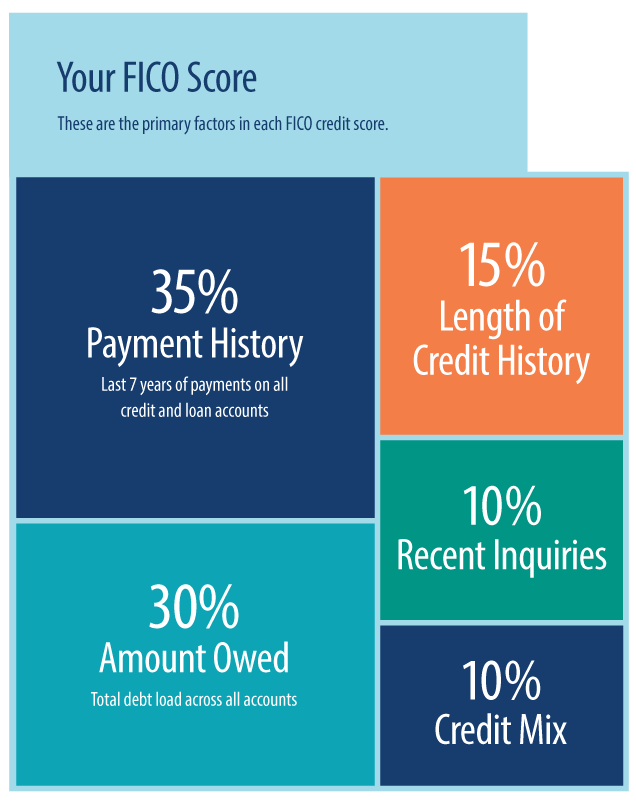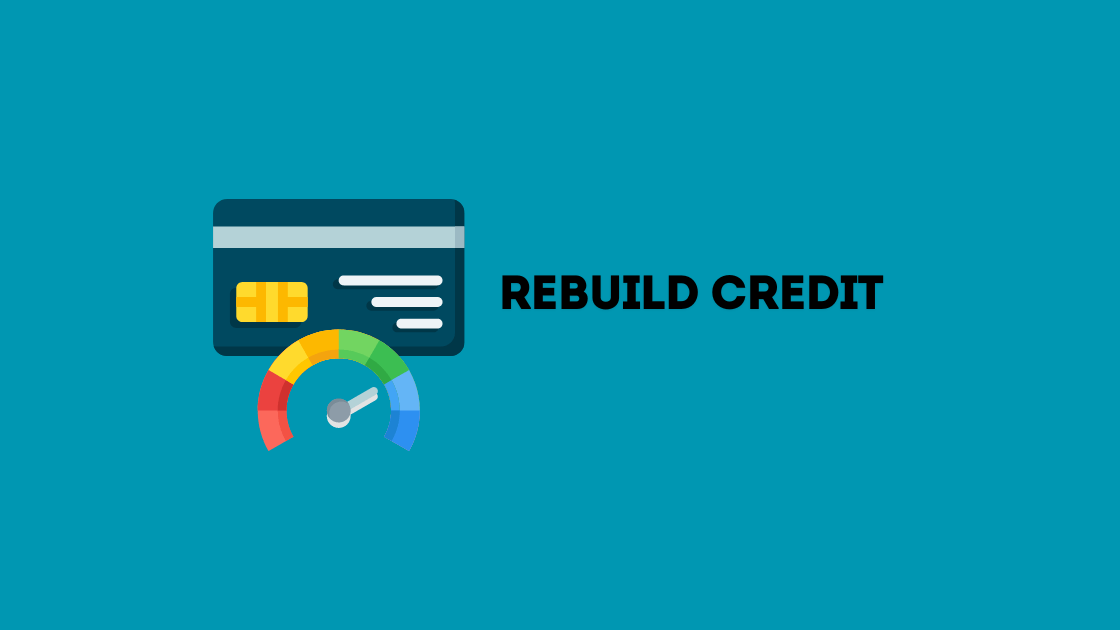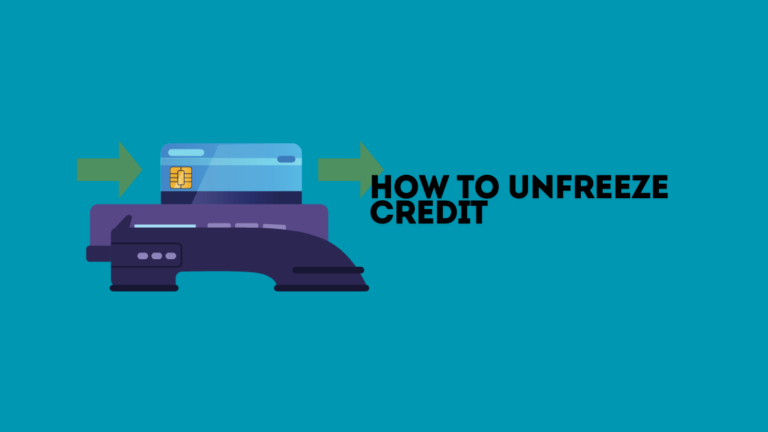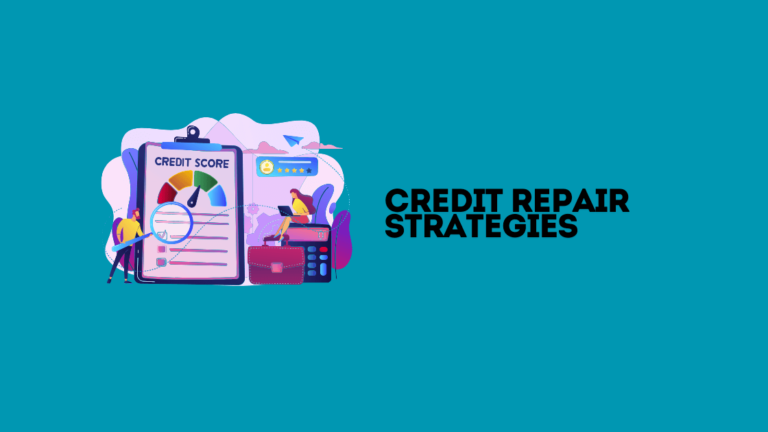Rebuild Credit: 5 Proven Steps to Financial Freedom
To rebuild credit, consistently pay bills on time and reduce outstanding debt. Regularly monitor your credit report for errors.
Rebuilding credit is crucial for financial health. It allows access to better loan terms, lower interest rates, and improved financial opportunities. Start by creating a budget to manage expenses effectively. Consistently paying bills on time will positively impact your credit score.
Reducing outstanding debt can significantly improve your credit standing. Regularly check your credit report to identify and correct any errors. Consider using a secured credit card to demonstrate responsible credit use. Patience and persistence are key; rebuilding credit takes time but is achievable with consistent effort. Stay committed to these practices to see a gradual improvement in your credit score.
The Significance Of Credit Health
Understanding the importance of credit health is crucial for financial stability. A good credit score opens doors to many economic opportunities. It also reflects your financial responsibility.
The Impact On Your Financial Opportunities
Your credit health can affect your ability to secure loans. Lenders look at credit scores to assess risk. A high score can lead to better loan terms and lower interest rates. This can save you money in the long run.
Good credit also impacts your ability to rent an apartment. Landlords often check credit scores before approving applications. A poor score can limit your housing options. This makes maintaining good credit essential for a stable living situation.
Employment opportunities can also be influenced by your credit health. Some employers review credit reports during the hiring process. A good credit score can make you a more attractive candidate.
Credit Scores: What They Say About You
A credit score is a numerical representation of your creditworthiness. It ranges from 300 to 850. Here’s what different score ranges generally indicate:
| Credit Score Range | Rating | Implications |
|---|---|---|
| 300-579 | Poor | High risk for lenders. Limited financial options. |
| 580-669 | Fair | Somewhat risky. Higher interest rates. |
| 670-739 | Good | Considered acceptable. Reasonable terms available. |
| 740-799 | Very Good | Low risk. Better loan terms and interest rates. |
| 800-850 | Excellent | Very low risk. Best financial opportunities. |
Maintaining a high credit score reflects positively on your financial habits. It shows you manage debt responsibly. This can build trust with lenders and other financial institutions.

Credit: www.winklawfirm.com
Assessing Your Credit Situation
Rebuilding credit starts with assessing your current credit situation. Understanding your credit status is key. This section guides you through obtaining your credit report and identifying problem areas.
Obtaining Your Credit Report
First, you need your credit report. You can get it from three major credit bureaus: Equifax, Experian, and TransUnion. Each bureau gives one free report annually.
Check the details carefully. Look for any errors or unfamiliar accounts. These mistakes can hurt your credit score. Correcting them is the first step in rebuilding your credit.
Consider using a credit report monitoring service. These services alert you to changes in your report. Staying informed helps you manage your credit better.
Identifying The Problem Areas
Now, identify the problem areas in your credit report. Look for late payments, high balances, and negative marks. These factors lower your credit score.
Create a table to track these issues:
| Problem Area | Details | Action Needed |
|---|---|---|
| Late Payments | Missed payments on credit cards | Pay overdue amounts |
| High Balances | Credit card balance exceeds 30% of limit | Pay down balances |
| Negative Marks | Bankruptcy, foreclosures | Wait for removal or dispute errors |
Prioritize paying down high balances. Keeping balances under 30% of your credit limit improves your score. Address any late payments promptly.
Dispute any errors you find. Incorrect information can lower your score. Contact the credit bureau to correct these mistakes.
Set up payment reminders. Ensure you pay all bills on time to avoid future late payments.
Step 1: Rectifying Credit Report Errors
Fixing credit report errors is the first step to rebuilding credit. Your credit report impacts your financial health. Ensuring it is accurate is crucial. Errors can lower your credit score. A lower score can lead to higher interest rates and loan denials.
Spotting Inaccuracies
Carefully review your credit report for any inaccuracies. Common errors include:
- Mistaken identity
- Wrong account details
- False late payments
- Duplicate accounts
Obtain your credit report from all three major bureaus: Equifax, Experian, and TransUnion. Compare reports to ensure consistency. Look for any discrepancies in personal information, account status, and payment history.
The Dispute Process
If you find errors, initiate a dispute with the credit bureau. Follow these steps:
- Gather evidence: Collect documents that support your claim.
- Contact the bureau: Send a dispute letter to the credit bureau.
- Include details: Mention the error and provide your evidence.
- Wait for a response: Bureaus have 30 days to investigate.
- Review updates: Check your report after the investigation.
You can submit disputes online, by mail, or by phone. Ensure you keep copies of all correspondence. Track your disputes to ensure they are resolved.
Rectifying credit report errors is vital. It helps you build a strong credit history. A clean report leads to better financial opportunities.

Credit: www.self.inc
Step 2: Tackling Outstanding Debts
Rebuilding credit can be challenging. The first step is understanding your debts. Tackling outstanding debts is crucial for a better credit score. This step helps you regain control and reduce financial stress.
Prioritizing Your Debts
Start by listing all your debts. Include credit cards, loans, and any unpaid bills. Write down the balance, interest rate, and minimum payment for each debt. This list will help you see the big picture.
Next, prioritize your debts. Focus on high-interest debts first. They cost you the most in the long run. Paying them off quickly saves money. Use the debt avalanche method. Pay off the highest-interest debt first. Then move to the next one. This method reduces the total interest paid.
If you prefer quick wins, try the debt snowball method. Pay off the smallest debt first. This gives you a sense of accomplishment. Then tackle the next smallest debt. This method builds momentum and keeps you motivated.
| Debt Type | Balance | Interest Rate | Minimum Payment |
|---|---|---|---|
| Credit Card 1 | $2,000 | 20% | $50 |
| Credit Card 2 | $1,000 | 15% | $25 |
| Personal Loan | $5,000 | 10% | $100 |
Negotiating With Creditors
Contact your creditors directly. Explain your situation honestly. Many creditors are willing to help. They might lower your interest rate or reduce your monthly payments. This makes it easier to manage your debts.
Prepare before the call. Have your account information ready. Know how much you can afford to pay. Be polite and firm. Ask for a reduced interest rate or a payment plan. Creditors prefer working with you rather than seeing you default.
Consider sending a hardship letter. A hardship letter explains why you can’t make the regular payments. Include details of your financial situation. Be honest and specific. This letter can be a powerful tool in negotiations.
- Gather your account information.
- Determine how much you can afford to pay.
- Contact your creditors.
- Explain your situation honestly.
- Request a reduced interest rate or payment plan.
- Consider sending a hardship letter.
Negotiating with creditors can lower your debts. It also shows you are responsible and committed to paying off your debts.
Step 3: Establishing Solid Payment Habits
Building good credit starts with solid payment habits. Paying bills on time boosts your credit score. It shows lenders you are reliable. Let’s look at two key ways to establish solid payment habits: setting up payment reminders and automating your payments.
Setting Up Payment Reminders
Forgetfulness can hurt your credit score. Setting up payment reminders helps you remember due dates. You can use various tools for this:
- Calendar Apps: Use your smartphone’s calendar to set reminders.
- Email Alerts: Many banks offer email alerts for upcoming payments.
- Text Messages: Some services send text reminders for due payments.
Choose the method that works best for you. Consistency is key. Ensure you check reminders daily. Missing a payment can drop your credit score significantly.
Automating Your Payments
Automation simplifies bill payments. It ensures bills are paid on time. Here are steps to automate your payments:
- Log In to your bank account online.
- Find the Bill Pay Option in the menu.
- Add Payees: Enter details of your billers.
- Set Up Recurring Payments: Choose how often to pay.
- Confirm and Save your settings.
Automating payments saves time and reduces stress. It ensures you never miss a payment. Make sure to keep enough funds in your account to cover automated payments.
Both payment reminders and automation are effective strategies. They help you manage your finances better. They also play a crucial role in rebuilding your credit.

Credit: www.moneymanagement.org
Step 4: Diversifying Your Credit Mix
Rebuilding your credit is a journey. One crucial step is diversifying your credit mix. A varied credit mix can boost your credit score. It shows lenders you can manage different types of credit accounts responsibly.
Understanding Different Types Of Credit
Credit comes in various forms. Each type affects your score differently. Here are some common types of credit:
- Installment Loans: These include car loans, mortgages, and personal loans. You pay a fixed amount monthly until the loan is repaid.
- Revolving Credit: Credit cards fall into this category. You have a credit limit and can borrow up to that limit as needed.
- Service Credit: Utility bills and mobile phone contracts are examples. Timely payments on these accounts can positively impact your credit score.
Strategically Opening New Accounts
Opening new accounts can help diversify your credit mix. But be strategic. Here are some tips:
- Start Small: Consider a secured credit card or a small personal loan. These are easier to manage and can help build your credit.
- Research Lenders: Choose lenders who report to major credit bureaus. This ensures your efforts are recognized in your credit report.
- Monitor Your Accounts: Keep track of your spending and payments. Set reminders to pay bills on time.
Below is a table summarizing the benefits of different types of credit:
| Type of Credit | Benefits |
|---|---|
| Installment Loans | Regular payments improve credit history. |
| Revolving Credit | Shows ability to manage flexible borrowing. |
| Service Credit | On-time payments boost credit score. |
Step 5: Limiting Hard Inquiries
Rebuilding your credit can seem like an uphill battle. One crucial step is limiting hard inquiries. Hard inquiries occur when you apply for credit, such as loans or credit cards. Each hard inquiry can lower your credit score. Knowing when to apply for credit and understanding the effect of inquiries on your score can help you manage this aspect effectively.
Knowing When To Apply For Credit
It’s essential to time your credit applications wisely. Applying for multiple credit lines in a short period can harm your credit score. Plan your credit applications thoughtfully. Avoid unnecessary applications to maintain a healthy credit score.
Here are some tips to consider:
- Only apply for credit when necessary.
- Space out your credit applications over time.
- Check your credit report before applying.
The Effect Of Inquiries On Your Score
Each hard inquiry can reduce your credit score by a few points. While a single inquiry might not make a huge difference, multiple inquiries can add up. The impact of a hard inquiry can last up to two years.
To illustrate, see the table below:
| Number of Hard Inquiries | Impact on Credit Score |
|---|---|
| 1 | Small impact, usually 5-10 points |
| 2-3 | Moderate impact, 10-20 points |
| 4 or more | Significant impact, 20+ points |
To minimize the impact, consider these tips:
- Keep track of your credit inquiries.
- Limit the number of applications you submit.
- Monitor your credit report regularly.
By managing your credit applications and understanding the effects of hard inquiries, you can take significant steps toward rebuilding your credit.
Maintaining Your Credit Rebuilding Momentum
Rebuilding your credit is an ongoing journey. The key is maintaining your momentum. Small, consistent actions lead to long-term success. Let’s focus on two critical areas: regularly monitoring your credit and adapting to financial changes.
Regularly Monitoring Your Credit
Regularly check your credit reports. This helps you spot errors quickly. Many websites offer free credit reports. Look for discrepancies in your report. Addressing mistakes can improve your score.
Monitor your credit score monthly. This keeps you informed about your progress. Use apps that alert you to changes. Early detection of issues can prevent bigger problems later.
Here’s a simple table to help you track your credit monitoring efforts:
| Task | Frequency | Tools |
|---|---|---|
| Check credit report | Quarterly | AnnualCreditReport.com |
| Monitor credit score | Monthly | Credit monitoring apps |
| Dispute errors | As needed | Credit bureau websites |
Adapting To Financial Changes
Your financial situation can change. Adapt to these changes to maintain credit momentum. Create a flexible budget. Adjust it as your income or expenses change.
Build an emergency fund. This helps you cover unexpected costs. Avoid using credit cards for emergencies. Save at least three months’ worth of expenses.
Here’s a checklist to help you adapt to financial changes:
- Review your budget monthly
- Save a portion of your income regularly
- Track your spending to identify areas to cut back
Stay proactive about your finances. This keeps your credit rebuilding on track. Remember, every small step counts.
Beyond Repair: Building Financial Freedom
Rebuilding credit is more than just fixing past mistakes. It’s about creating financial freedom. This journey requires strategic steps and long-term goals. Below, we break down some essential aspects of building financial freedom beyond repair.
Creating A Budget For Success
Building a solid budget is the cornerstone of financial freedom. A budget helps you track spending and allocate resources effectively.
Start by listing all sources of income:
- Salary
- Freelance work
- Side businesses
Next, list all your expenses:
- Rent or mortgage
- Utilities
- Groceries
- Debt payments
Use a table to get a clear view:
| Income | Amount |
|---|---|
| Salary | $3,000 |
| Freelance Work | $500 |
| Side Business | $200 |
| Expense | Amount |
|---|---|
| Rent | $1,000 |
| Utilities | $150 |
| Groceries | $300 |
| Debt Payments | $250 |
Calculate the difference between income and expenses. Ensure there’s a surplus. Allocate this surplus towards savings and investments.
Investing In Your Future
Investing is crucial for long-term financial stability. Small investments can grow significantly over time.
Consider these investment options:
- Stock Market – Potential high returns but involves risk.
- Mutual Funds – Diversified and managed by professionals.
- Real Estate – Stable and tangible asset.
Automate your investments. Set up automatic transfers to your investment accounts. Even small, regular contributions add up.
Track your investments. Use apps or financial software for this purpose. Regularly review and adjust your portfolio as needed.
Stay informed. Read financial news and blogs. Knowledge is power in investing.
By following these steps, you can rebuild credit and achieve financial freedom. Stay committed and focused on your goals.
Can Fixing My Credit to Buy a House Help Me Rebuild Financial Freedom?
Fixing your credit can be a powerful step toward long-term stability. When you focus on strategies to fix my credit to buy a home, you’re also improving financial habits that impact your future. A better credit score means lower interest rates, manageable payments, and greater financial freedom for years to come.
Frequently Asked Questions
1. What Is The Fastest Way To Rebuild Bad Credit?
The fastest way to rebuild bad credit is to pay bills on time, reduce debt, and check your credit report. Use secured credit cards responsibly and avoid new hard inquiries. Monitor your credit score regularly.
2. How Long Does It Take To Rebuild Credit From 500 To 700?
Rebuilding credit from 500 to 700 usually takes 1-2 years. Factors include paying bills on time and reducing debt.
3. Can You Rebuild Your Credit Score?
Yes, you can rebuild your credit score. Pay bills on time, reduce debt, and monitor your credit report. Use credit cards responsibly and avoid new debt. Consider using a secured credit card to improve your score.
4. How To Get A 700 Credit Score In 2 Years?
Pay bills on time, reduce debt, keep credit utilization low, avoid new credit applications, and monitor your credit report.
5. How Can I Start Rebuilding My Credit?
Begin by checking your credit report for errors. Pay bills on time and reduce outstanding debt.
Conclusion
Rebuilding credit takes time and patience. Follow the steps outlined to see improvement in your credit score. Responsible financial habits are key. Monitor your progress regularly. Remember, every small effort counts. Stay consistent and committed to your goal. Better credit opens doors to more financial opportunities.







